Dagstuhl-Seminar 25101
Guardians of the Galaxy: Protecting Space Systems from Cyber Threats
( 02. Mar – 07. Mar, 2025 )
Permalink
Organisatoren
- Ali Abbasi (CISPA - Saarbrücken, DE)
- Gregory J. Falco (Cornell University - Ithaca, US)
- Daniel Fischer (ESA / ESOC - Darmstadt, DE)
- Jill Slay (University of South Australia - Mawson Lakes, AU)
Kontakt
- Michael Gerke (für wissenschaftliche Fragen)
- Jutka Gasiorowski (für administrative Fragen)
Gemeinsame Dokumente
- Dagstuhl Materials Page (Use personal credentials as created in DOOR to log in)
Programm
The full Dagstuhl Report synthesizes the outcomes of Dagstuhl Seminar 25101, ``Guardians of the Galaxy: Protecting Space Systems from Cyber Threats,'' which convened 40 experts from academia, industry, and government. The seminar established a clear consensus that space cybersecurity is a qualitatively distinct discipline, not merely an extension of terrestrial challenges. The seminar focused on:
- Defining the Foundational Challenges: Articulating why space is different and how this affects the security domain, focusing on the ambiguity created by the harsh physical environment, the necessity of high-stakes autonomy due to extreme latency, and the uniquely asymmetric attack surface.
- Structuring the Problem Space: Organizing analysis and solutions around four key operational functions via dedicated working groups: ATTCK/PREPARE, DETECT, PROTECT, and RESPOND.
- Formulating a Strategic Roadmap: Proposing a multi-pillar plan to foster a cumulative and collaborative research ecosystem that bridges the gap between academic innovation and operational needs.
As a major result, the seminar identified the following interconnected problem areas and corresponding future research directions:
The Testbed and Data Gap: Overcoming the critical shortage of realistic research infrastructure by developing a federated ecosystem of high-fidelity testbeds. A key requirement is that these testbeds must be segment-complete, modeling the entire ground-link-space chain, and support graduated fidelity. This allows researchers to move between pure simulation, hardware-in-the-loop, and testing with unmodified firmware binaries depending on the research question. Furthermore, institutional spacecraft operators should be encouraged to share more representative data sets that can be used in research.
Securing Next-Generation Communications: Addressing the unique security needs of future space networks. This includes maturing protocols for the Solar System Internet (e.g., Delay Tolerant Networking – DTN) essential for deep space, planning the transition to Post-Quantum Cryptography (PQC), and developing resilient defenses against jamming and spoofing for high-bandwidth optical and RF links.
Building Trustworthy Autonomous Systems: Ensuring that onboard AI and autonomous systems are secure and safe. This requires developing physics-informed and resource-aware intrusion detection, designing systems to be “forensic-by-design” so that evidence of an attack survives recovery actions, and implementing verifiable and secure software update pipelines.
Strengthening the System Foundation: Mandating a “secure-by-design” philosophy anchored in hardware. This involves adopting measured boot processes, internal message-level authentication, and robustly managing the cybersecurity of the global supply chain (C-SCRM) for all components.
Establishing a Collaborative Ecosystem: Creating the necessary non-technical structures for progress. This includes developing clear governance and interoperable standards, establishing “safe-harbor” policies for vulnerability disclosure, and implementing new collaborative models, such as co-funded PhD programs, to grant researchers vital access to realistic systems and data.
 Ali Abbasi, Gregory J. Falco, Daniel Fischer, and Jill Slay
Ali Abbasi, Gregory J. Falco, Daniel Fischer, and Jill Slay
The aim of this Dagstuhl Seminar is to tackle the pressing issue of cybersecurity within the space sector. This event wants to bring together the experts from academia and industry to tackle the open problems in securing our space infrastructure against a growing number of cyber-attacks.
The need for such a seminar has never been more critical. The expansion of commercial space operations and the increasing number of satellite networks have opened new fronts for cyber threats. These threats range from practical attacks on satellite communications, as seen with the Viasat incident during the conflict in Ukraine, to academic research on exploitation of vulnerabilities in satellite firmware or full satellite takeover.
Our seminar’s objective is straightforward: to foster the development of new theories, technologies, and systems that address the unique security challenges in space. We aim to spark collaborative research and establish key focus areas in space cybersecurity. By bringing together experts from diverse fields, we will explore research questions and innovative solutions to protect space vehicles, ground stations, and communication networks from cyber threats.
Key topics will include enhancing the resilience of space vehicles to withstand cyber attacks, securing ground segment operations critical for mission control, and safeguarding communication links against eavesdropping and interference. Additionally, we will delve into the design of secure space systems, the application of intrusion detection and prevention measures, and the implications of autonomy for security in space missions.
The seminar will not only highlight current challenges and vulnerabilities but also aim to outline a roadmap for future research and development in space cybersecurity. We hope to create a platform for ongoing collaboration between the participants, bridging the gap between academic research and practical, industry-led solutions.
By the end of the seminar, we expect to have laid the groundwork for enhanced protection of space systems, contributing to the security and reliability of critical infrastructure that depends on space-based technologies.
 Ali Abbasi, Gregory J. Falco, Daniel Fischer, and Jill Slay
Ali Abbasi, Gregory J. Falco, Daniel Fischer, and Jill Slay
Please log in to DOOR to see more details.
- Ali Abbasi (CISPA - Saarbrücken, DE) [dblp]
- Steven Arzt (Fraunhofer SIT - Darmstadt, DE) [dblp]
- Brandon Bailey (The Aerospace Corp. - Los Angeles, US)
- Lars Baumgärtner (ESA / ESOC - Darmstadt, DE)
- Nesrine Benchoubane (Polytechnique Montréal, CA)
- Simon Birnbach (University of Oxford, GB) [dblp]
- Antonio Carlo (Tallinn University of Technology, EE) [dblp]
- José Manuel Diez López (TU Berlin, DE)
- Knut Eckstein (ESA / ESTEC - Noordwijk, NL) [dblp]
- Gregory J. Falco (Cornell University - Ithaca, US) [dblp]
- Daniel Fischer (ESA / ESOC - Darmstadt, DE) [dblp]
- Kevin Gilbert (NASA - Greenbelt, US)
- Florian Göhler (BSI - Bonn, DE)
- Arne Grenzebach (OHB System - Bremen, DE)
- Gürkan Gür (ZHAW - Winterthur, CH)
- Jessie Hamill-Stewart (University of Bristol, GB)
- Wayne "Chris" Henry (Air Force Inst. of Technology - Wright-Patterson, US)
- Eric Jedermann (RPTU - Kaiserslautern, DE)
- Samuel Jero (MIT Lincoln Laboratory - Lexington, US) [dblp]
- Gunes Karabulut Kurt (Polytechnique Montréal, CA) [dblp]
- Syed Ibrahim Khandker (New York University - Abu Dhabi, AE)
- Vincent Lenders (armasuisse - Thun, CH) [dblp]
- Efrén López Morales (Texas A&M University - Corpus Christi, US)
- Mark Manulis (Universität der Bundeswehr - München, DE) [dblp]
- Carsten Maple (University of Warwick, GB & Alan Turing Institute - London, GB) [dblp]
- Ulysse Planta (CISPA - Saarbrücken, DE)
- Aanjhan Ranganathan (Northeastern University - Boston, US) [dblp]
- Markus Rückert (ESA / ESOC - Darmstadt, DE)
- Peter Y. A. Ryan (University of Luxembourg - Esch-sur-Alzette, LU) [dblp]
- Harshad Sathaye (ETH Zürich, CH) [dblp]
- Stephen Schwab (USC/ISI - Arlington, US)
- Mridula Singh (CISPA - Saarbrücken, DE)
- Jill Slay (University of South Australia - Mawson Lakes, AU) [dblp]
- Joshua Smailes (University of Oxford, GB) [dblp]
- Fiona Stone (UK Space Agency - London, GB)
- Martin Strohmeier (armasuisse - Thun, CH) [dblp]
- Rosa Szurgot (Embry-Riddle Aeronautical University - Prescott, US)
- Mattias Wallén (Swedish Space Corporation - Solna, SE)
- Marcus Wallum (ESA / ESOC - Darmstadt, DE)
- Johannes Willbold (Ruhr-Universität Bochum, DE) [dblp]
Klassifikation
- Cryptography and Security
- Emerging Technologies
Schlagworte
- Space cyber security
- cyber-physical systems

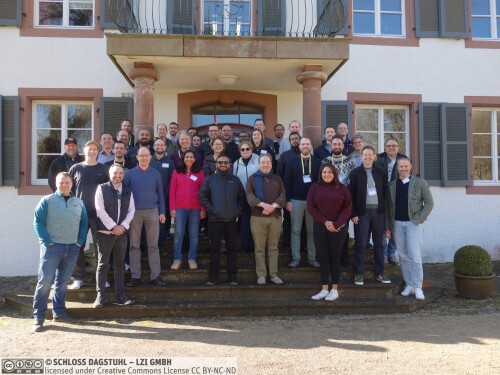
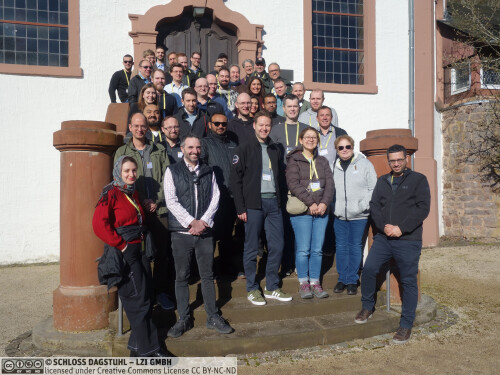
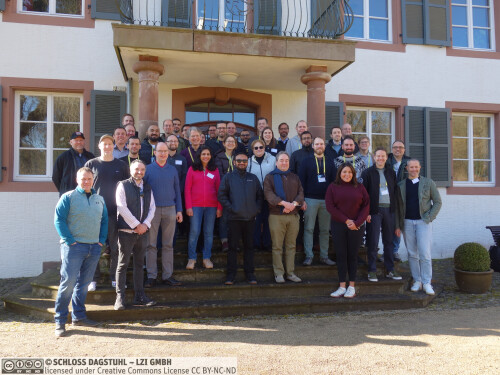
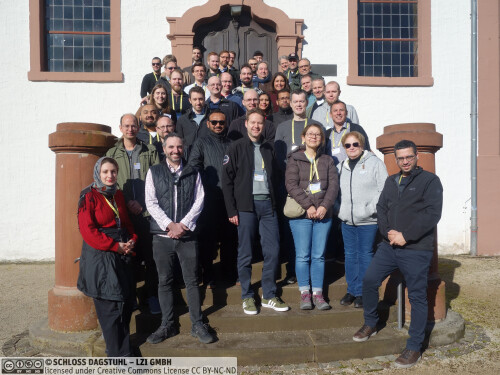
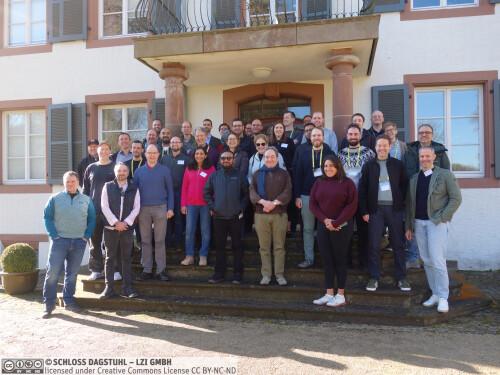
 Creative Commons BY 4.0
Creative Commons BY 4.0
